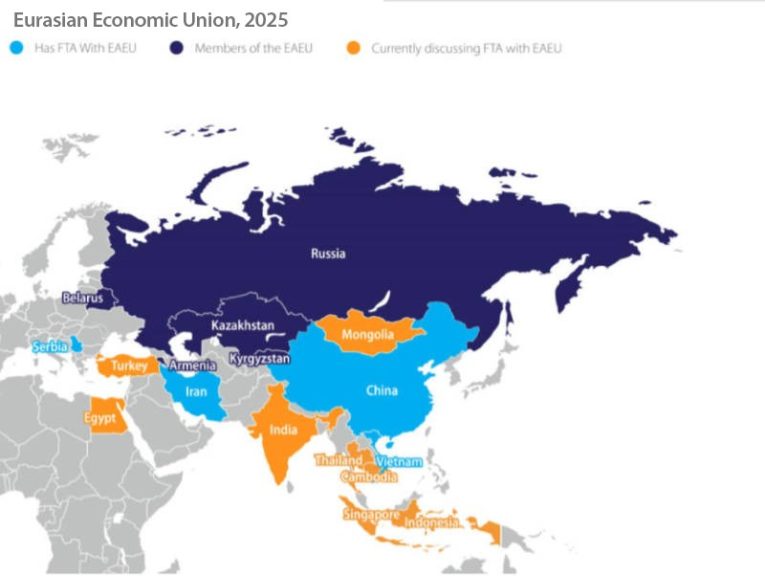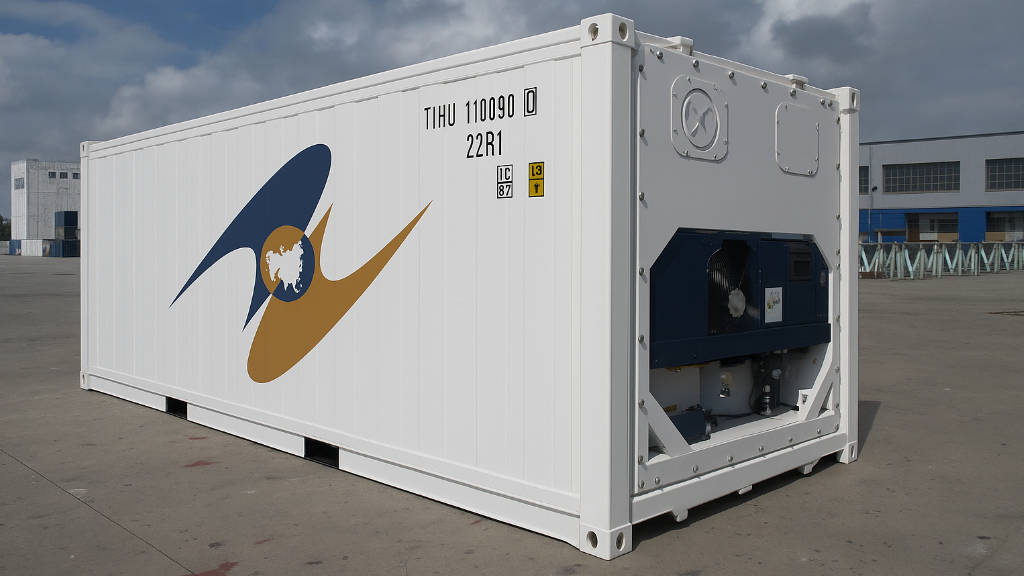The Eurasian Agro-Express service, which was originally designed to service the Chinese markets and Southeast Asian markets with high-speed deliveries of perishable goods from Russia and the Eurasian Economic Union, could be extended.
Andrei Slepnev, the Minister for trade at the Eurasian Economic Commission (EEC), stated at the fourth Eurasian Economic Forum in Minsk on Friday (June 27) that “The project initially focused on Southeast Asia and the Chinese market, but today its map is expanding. Practical work has begun on the North-South corridor – a promising direction for agricultural products. This refers to Iran as well as other countries in the region. For example, it would be interesting to include the United Arab Emirates in the Eurasian Agro-Express project. Work is also underway with Mongolia – a close partner of the Eurasian Economic Union and a transit country towards China.”
The Mongolia route would provide competition for the Mongolian consumer market, which is mainly served by China. Products would originate from Russia and Kazakhstan.
Looking towards the Middle East, the EEC have already held negotiations with Iran in March as part of the Eurasian Agro-Express project, with Vladimir Serpikov, the director of the EEC Trade Policy Department, saying “We proposed with Iran the formation of green corridor principles for transit shipments under the project, increasing the cargo base along the Iran-EAEU route, and raising awareness among Iran’s business community about the project and its opportunities.”
The extension of this route can then feed other Middle Eastern destinations and provide competition for local markets. Products from this route would come mainly from EAEU members Armenia, Belarus and Russia.

The EEC and Iran have agreed to consider these issues at meetings of the transport and transit cooperation subcommittee, which will be established as part of implementing the complete Iran-EAEU free trade agreement, which is still undergoing some tweaks despite being effectively in force.
The initiative to implement the Eurasian Agro-Express project for accelerated rail and multimodal transport was approved by the Eurasian Intergovernmental Council in February 2022. The intent is to develop regular mutual supplies of agricultural products and food, as well as export shipments to Asian and European destinations. In February 2023, the Intergovernmental Council expanded the project to include International North-South Transport Corridor (INSTC) routes.
The Eurasian Economic Union includes Armenia, Belarus, Kazakhstan, Kyrgyzstan and Russia and fills a geographic space between Eastern Europe and Western China. It is a Free Trade bloc and also has free trade agreements with China, Iran, and Vietnam, while Mongolia is about to agree a deal, with India and Indonesia expected to do the same later in the year.
Over three years of implementation, the project has transported over 1.5 million tonnes of perishable cargo, more than half of which was refrigerated. That will now increase.
Further Reading
Russia, Iran, Discuss Agricultural Cooperation, Trade, and Bandar Abbas Logistics Hub

 Русский
Русский













